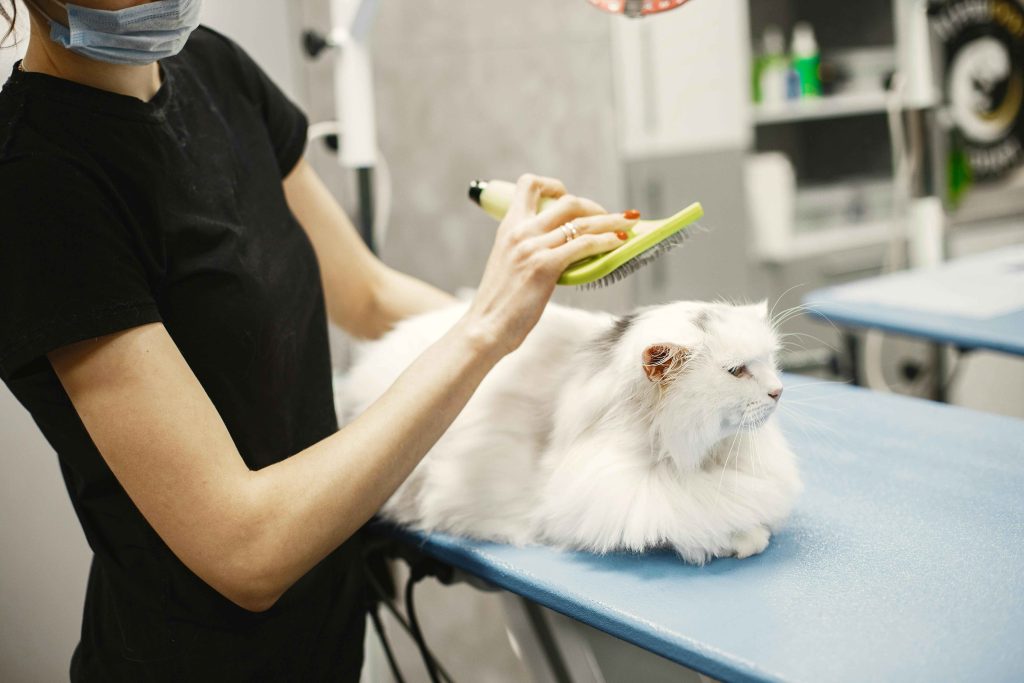
Whether you have adopted a new cat or you’ve had cat companions all your life, being a cat parent comes with a big responsibility. From providing adequate food and litter training to offering veterinary care and ensuring proper grooming to playtime, we have got you covered with everything about cat care tips in this article that will set a strong foundation for both you and your new pet to start on the right foot.
Essential Cat Care Tips: Nurturing Their Wellbeing
Cats are lovable creatures with playful personalities, cute faces and low maintenance. If you are in team dog or other pets, the good news about having cats is they are self-sufficient and need less care. But despite this popular belief note that cats are not fairly maintenance-free. As a first-time cat parent, it’s important to follow these top 10 key rules when caring for your new furry family member.
Providing Proper Nutrition: Ensuring your cat companion receives a properly balanced diet based on their nutritional requirement is again important. Whether you are raising a kitten adult, or senior cat, feeding food to them should adhere to their age, weight and physical activity. Meanwhile, maintain a regular feeding schedule and portion control to maintain the cat well being. You can always consult your vet for recommendations on the right feeding guide.
Cat Supplements: Some cats may have specific health issues that diet alone can’t manage. In such cases, supplements can help support overall well-being. Cat supplements come in various forms of vitamins, minerals, fatty acids and probiotics for unique health needs. So it’s important to consult a vet to determine “what is best for your cat?”.
Cat Dental Care: Cats like humans suffer at risk of dental disease. About 70 per cent of cats suffer dental issues at the age of 3. To check this, make brushing a part of their daily routine. Use a toothpaste made specifically for cats. With a little bit of time and training, teeth brushing can be a fun activity for your kitten every day and prevent dental disease.
Litter Box and Scratch Box: Encourage cats to use the litter box regularly. Place them in a quiet place and clean them regularly. However, you generally don’t need to train cats to use the litter box. Even stray cats will get used to burying their waste after going to the bathroom. Usually, all you have to do is show her where the litter box is placed and show her how to dig in the (clean) litter using your hand.
Scratching is the usual natural habit of cats and this should not cost you with your home furnishings. The best tip here is to introduce them to a scratching post to indulge in normal and healthy behaviour.
Understand Cat Sleep Pattern: Cats generally sleep for 12 to 16 hours in a day and even more. This is the reason they like to sleep in more quiet and safe places. Choose a comfortable, warm and safe environment for cats, away from loud noises. Also, make sure to provide them with cozy beds and blankets for their quality sleep.
If you notice any change in their sleeping routine, for example they are sleeping less or excessively, and seem restless and lethargic, prompt attention and vet visits seem important.
Grooming your cat: Cats are fastidious and self-sufficient groomers. They spend approx 30% of their waking time grooming themself. but despite this, you need to brush their long hair regularly to address shedding issues, remove dead skin, distribute its natural oils, and allow air circulation throughout the furry coat.
While grooming, look out for signs of skin problems such as rashes or lumps. It is best to get them checked by a veterinarian for such issues and future advice.
Play And Exercise For Mental Stimulation: Cats like to indulge in various playtime activities for mental stimulation to stay happy and healthy. Spend happy time with your furry friend while grooming, talking, relaxing and playing games with them. Try laser pointers, tossing their favourite toy, and interactive puzzles to keep them entertained and active.
Consult Vet Regularly: Since you are the one who knows your beloved companion well, you may want to provide the best nutrition, vitamins, and required medical care. The best method to achieve that is to refer to a pet-friendly vet for your cat’s well-being and discuss with them whatever changes you’d like to make.
Also, If your dog becomes ill or is hurt, your veterinarian will be able to assure you that you’ve got a safe product and plan in place. They will also record the changes in your pet’s medical records ensuring better health and lifestyle.
Spaying or Neutering a Cat: Spaying or neutering your cat is essential to avoid an unintended pregnancy. Along with this other health advantages of spaying female cats lower the chance of womb infections and ovarian cancer. Meanwhile, Neutering Males helps keep them from fighting with other male cats and avoids the risk of testicular and spraying urine throughout the house.
Kittens are often neutered or spayed at 4 months of age. For more information, ask your veterinarian to provide you with further details.
Monitor Cat Health: Keep an eye out for any potential health issues and monitor behavioural and food habit changes as this may indicate an underlying problem. Similarly, be mindful of their regular activities, litter habits and signs such as lumps, bumps, and unusual odours. Speak to your veterinarian, if you notice any symptoms of this sort.
Final Thought On Feline Well-Being:
Proper cat care and regular attention are important for their overall happiness and health. By applying these care tips mentioned above, you’re setting the stage for a healthy and contented feline. Much like a dog needs quality grooming products and healthy treats, your cat deserves thoughtful care and quality. From nutritious meals to enriching activities, regular vet visits to grooming products every effort you make will ensure your cat’s happiness. Enjoy the process of attentive cat care and take pride in watching your furry baby excel!
